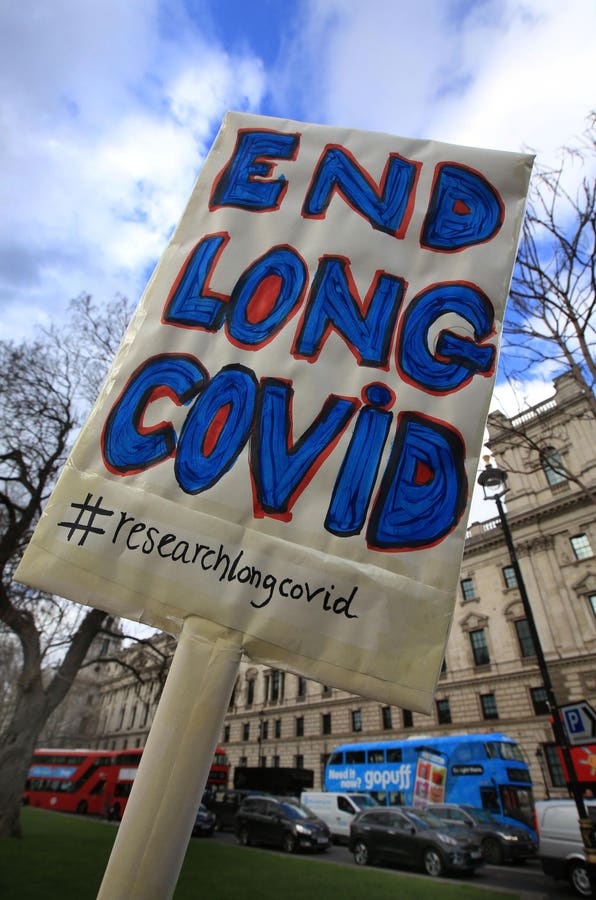Decreased serotonin levels could be a plausible explanation for some of the symptoms experienced with long Covid, according to recent research from the University of Pennsylvania.
In the study published in the journal Cell, the authors analyzed blood samples from 58 long Covid patients experiencing symptoms for between three months and 22 months since being infected, and compared that with blood samples with 60 patients in the acute phase of Covid-19 infection as well as 30 patients with no post Covid-19 symptoms.
The researchers found that the only significant molecule that did not recover to pre-infection levels in patients with long Covid was Serotonin. Here is why this is important.
Provides A Possible Understanding For the Disease Process
According to the World Health Organization, long Covid occurs as the continuation or the development of new symptoms three months after initial Covid-19 infection, with symptoms lasting for at least two months without other explanation. Long Covid can result in a wide range of symptoms, including but not limited to fatigue, memory loss, chest pain, headache, chest pain, diarrhea and joint pain. According to CDC data, 1 in 13 U.S. Adults have long Covid symptoms.
Despite the many Americans that have suffered from this debilitating disease, researchers are still working to understood what actually causes long Covid. Investigators from the University of Pennsylvania provide insight into possible mechanisms that can explain long Covid.
According to them, patients with long Covid have viral particles that linger in the gut, which is where 90% of serotonin is produced in the body. The viral particles ultimately interfere with the ability of the body to produce serotonin, a neurotransmitter that helps send messages between the brain and body.
Serotonin is also largely responsible for regulating mood, digestion, sleep, nausea, depression and memory. Decreased serotonin levels could explain many of the symptoms patients experience with long Covid, such as memory loss, fatigue, depression and nausea; to name a few.
Discovery Of Biomarkers To Diagnose And Track The Disease
Currently, there are no diagnostic tests or imaging exams that can diagnose long Covid. If the results of the aforementioned study hold, then serotonin blood values could emerge as a potential means to diagnose long Covid in patients that are having symptoms compatible with the disease.
This also means serotonin lab values could be used to monitor the disease and to assess if patients are improving based on various treatments that are given. For example, if serotonin values increase for a patient over time after the initiation of therapy, then presumably a patient could be on their way to recovering and that provides support for the success of new therapies targeted at treating long Covid. To date, no such lab biomarker exists to help diagnose or track long Covid, making serotonin research a potentially promising new discovery.
Development Of Targeted Therapies
There are currently no specific treatments for long Covid, and treatment is based on effective prevention of getting Covid-19 infection itself which includes staying up to date with Covid-19 vaccinations.
The new serotonin research sheds light on the possibility of developing specific therapies that could be geared towards increasing serotonin in the body, thereby alleviating some of the symptoms of long Covid. Some of these types of medications already exist, such as serotonin selective reuptake inhibitors that are commonly used to treat anxiety and depression.
Medications aimed at increasing serotonin levels could provide effective and personalized treatment options for the thousands of Americans suffering from a disease that has no specific treatment.
The Future
Much more research is still needed to definitively identify serotonin as a crucial link in the pathway that could contribute to long Covid. The study published in the journal Cell was a small study and research on a larger cohort of patients would be needed to corroborate the findings. In addition, participants in other long Covid studies did not always show decreased serotonin levels, according to a report from The New York Times.
Despite these limitations, the new research surrounding serotonin provides hope for the large number of Americans seeking to take control of a disease that the scientific community has been struggling to understand.
Read the full article here





